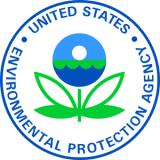EPA Region 7 Honors K-State PPI and Shawnee Mission East High School in Prairie Village, Kansas, for Sustainable Food Management Practices

LENEXA, KAN. (JAN. 27, 2022) – The Kansas State University Pollution Prevention Institute (PPI) in Manhattan, Kansas, and Shawnee Mission East High School in Prairie Village, Kansas, were recognized by the U.S. Environmental Protection Agency (EPA) Region 7 for notable achievements and innovations in EPA’s Food Recovery Challenge in 2020 through their promotion of EPA’s Sustainable Management of Food principles.
“The EPA Food Recovery Challenge Award winners demonstrate how preventing food waste and diverting excess wholesome food away from landfills and to people is important for the environment and for communities,” said EPA Administrator Michael S. Regan. “Their accomplishments serve as excellent examples to other companies, governments, organizations and communities, particularly because food is the single largest category of waste. We have an obligation to follow the lead of our award winners, not only for the sake of 35 million food-insecure Americans, but also to prevent emissions that contribute to climate change.”
Through the Food Recovery Challenge (FRC), EPA has worked with organizations and businesses for the past decade to set data-driven goals, implement targeted strategies to reduce wasted food in their operations, and report results to compete for recognition.
“Community-based organizations and businesses are the lifeblood of our food recovery program,” said EPA Region 7 Administrator Meghan A. McCollister. “As we celebrate Shawnee Mission East’s and K-State’s successes with these awards, we invite other businesses and organizations to step up and join us in this valuable community endeavor.”
The K-State Pollution Prevention Instituteprovided 30 outreach presentations and held a food recovery recognition event, while providing food recovery-related technical assistance to an additional 50 organizations.
“The PPI’s team is passionate about providing food recovery assistance and awareness programing that results in social, economic, and environmental impact,” said PPI Director Nancy Larson.
With the institute’s consultation, organizations donated 48.5 tons of excess food to pantries to feed people and to provide animal feed to farmers. The organizations also composted 16 tons of food waste that was diverted from Kansas landfills.
The Shawnee Mission School Districtcafeteria composting program began in 2008 and spread across the district as a grassroots effort led by students, parents, teachers, administrators, and community partners. With interesting waning by 2018, Shawnee Mission East High School began a renewed effort to generate interest in proper disposal in recycling, food waste, and trash with students and staff. They chose to educate and build a common structure with elementary, middle, and high school students.
“We had an opportunity to build on the efforts of our elementary and middle schools in the area of food waste composting,” said Director of Secondary Education and Former Principal Dr. Scott Sherman. “Younger students were accustomed to managing food waste, so we were able to build on these efforts and expectations, which led to a significant increase in the positive impact our high school had on diverting and managing food waste.”
In 2018, they were able to compost 1.94 tons of food waste during the year, but were able to increase that total to 12.4 tons in 2019, a 538% in just one year. The composted food is returned to school gardens and the culinary urban farm program to grow more food. The school credits the custodial staff, led by Dale Clark, and the Shawnee Mission East administrative staff for the success of the program.
During 2019 and 2020, FRC national awardees implemented innovative approaches and engaged in practical, cost-effective actions and best practices to prevent and reduce wasted food. Many FRC national awardees provided much-needed food during the COVID-19 pandemic.
Nearly 600 businesses, governments and organizations actively participated in EPA’s Food Recovery Challenge in 2020-2021. Since the launch of the program in 2011, FRC partners prevented or diverted over 5.5 million tons of wasted food from entering landfills or incinerators. In the most recent reporting cycle, FRC partners prevented or diverted about 1.2 million tons of food from entering landfills or incinerators, saving partners up to $61.5 million in avoided landfill tipping fees.
Background
Each year in the United States, 73 to 152 million metric tons of food is lost or wasted during all stages of the food supply chain (from primary production to consumption), according to the EPA’s November 2021 report, From Farm to Kitchen: The Environmental Impacts of U.S. Food Waste. Food waste adversely impacts the economy, communities, and the environment by wasting the resources used to grow and transport it. Preventing food waste and keeping food and other organics out of landfills mitigates climate change, as an estimated 8% of global greenhouse gas emissions come from wasted food. At the same time, uneaten food contains enough calories to feed over 150 million people each year, far more than the 35 million estimated food-insecure Americans.
Best practices used by FRC awardees to reduce wasted food in their operations, in addition to actions taken by individuals and communities, keep wasted food from landfills. Their actions also bring the United States closer to meeting the re-aligned national goal with the United Nation’s Sustainable Development Goal Target 12.3 to cut food loss and waste in half by 2030.
Learn more about the Food Recovery Challenge national and regional awardees.
Learn more about the national food loss and waste reduction goal.
# # #
Learn more about EPA Region 7
View all Region 7 news releases
Connect with EPA Region 7 on Facebook: www.facebook.com/eparegion7
Follow us on Twitter: @EPARegion7
